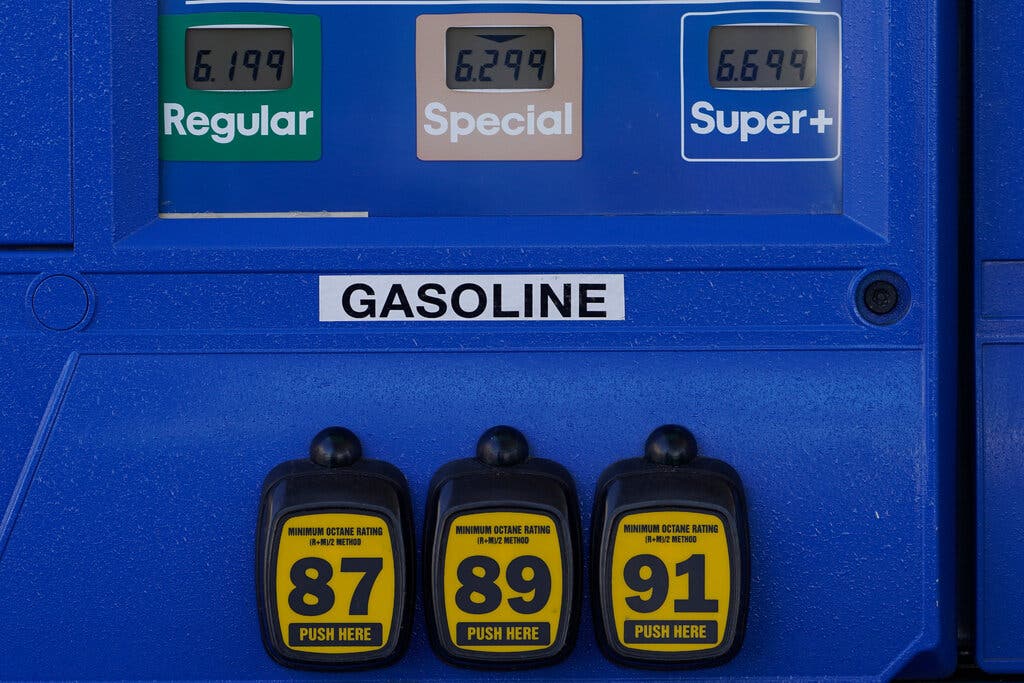On Sunday night, oil prices soared after the announcement by Russian President Vladimir V. Putin that his country’s nuclear weapons would be placed on high alert overshadowed prospects for a breakthrough in discussions between Russia and Ukraine.
Traders in oil and most political experts and government officials in the West were suspicious of President Volodymyr Zelensky’s declaration that a Ukrainian team will meet with a Russian group near the Ukraine-Belarus border for discussions “without preconditions.”
Oil and natural gas prices in Western Europe have not been pushed up in recent days as a result of Western sanctions on Russia, which have so far not hampered the shipment of oil and natural gas to the region. However, the Brent oil standard jumped by more than 5 percent at the start of trade on Sunday, reaching $103 a barrel, while the American West Texas Intermediate benchmark went even higher, by almost 6 percent, to $97 a barrel, according to data from the Energy Information Administration. Later in the evening on Sunday night, prices began to stabilise after weeks of fluctuation.
According to polls conducted by the AAA motor club, gasoline prices in the United States have increased by around a cent per gallon on a daily basis during the previous week. Gasoline prices are almost a $1 more than they were a year ago, with the national average at $3.60 per gallon for regular.
As the Russians move on with their invasion of Ukraine, the risks of increased oil costs remain significant. In the early stages, the Russian onslaught slowed as a result of fierce opposition from the Ukrainian military forces and the Ukrainian population.
Bombing and rocket fire have the potential to destroy critical pipelines that travel through Ukraine, albeit this has not yet occurred. Some Republican leaders, as well as members of Congress from both parties, are advocating for stiffer penalties on energy deals in Congress. Western oil corporations may conclude that doing business with Russia is not worth the risks, particularly if Western technology and oil services are targeted by sanctions, or if banking penalties prevent Russian payments from reaching their accounts.
According to a study published on Sunday by RBC Capital Markets, “Perhaps the biggest uncertainty will be the Russian reaction.” “As a result of the central bank restrictions, Russia’s access to its foreign currency reserve war chest and profits from oil sales held in foreign accounts would be significantly reduced.”
The severe economic attitude taken by the West towards Russia is already having an impact on the country. In a statement issued on Sunday, BP said it would “leave” its almost 20% holding in Rosneft, the large Russian oil corporation, and that it would withdraw its two members from the Rosneft board of directors. Having spent more than three decades conducting business in Russia, the British-based firm was forced to withdraw at the last minute.
The owners of Ukraine’s natural gas pipelines said on Sunday that natural gas transportation from the nation to most of the rest of Europe was operating normally.
Another unknown will be Russia’s attitude in the OPEC Plus meeting on Wednesday, in which it will be a partner with Saudi Arabia and other big producers, which will take place on Wednesday. The committee is gathering to determine how much more output should be increased in order to mitigate worldwide price hikes. For the time being, though, Washington has had little luck in pressuring the organisation to increase its output.

